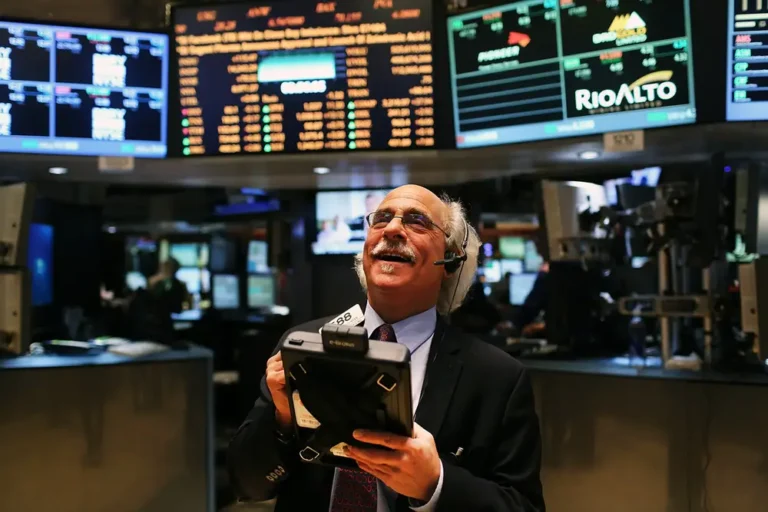Morgan Stanley: These 47 stocks can provide investors with high yields and stability in a market rocked by geopolitical conflict, economic uncertainty, and restrictive monetary policy

- Today’s market is more turbulent than ever thanks to new conflict igniting between Israel and Hamas.
- Investors have seen returns recede recently, but dividend-paying stocks can help bolster portfolios.
- Stocks with high yields and low volatility can offer safety, according to Morgan Stanley.
The start of a second major international conflict in as many years has investors wondering what more upheaval means for their portfolios.
This year, the S&P 500 appeared to be an unstoppable force, with stocks surging higher as fears of a recession faded. However, the market ran into an immovable object last month in the form of Jerome Powell, who stated that the Fed may need to keep rates higher for longer than expected, reigniting recession fears and sending stocks tumbling.
Israel has now declared war on Hamas, igniting a conflict that threatens to deplete stocks even further. The effects have already been felt in the oil market, with the price of oil rising due to concerns about disrupted supply from Middle Eastern countries close to the fighting.
There’s a lot on investors’ minds right now, but one type of investment, according to Morgan Stanley, may help them relax: dividend stocks.
In a late September note to clients, chief investment officer Mike Wilson explained how history has shown that dividend-paying stocks can provide stability in a variety of markets and inflation regimes, making them smart choices for concerned investors.
A track record of outperformance in both good and bad times
Dividend-paying stocks have outperformed non-dividend stocks by a wide margin since 2000. Indeed, Wilson observed that dividend-paying stocks outperform their non-dividend peers during market downturns.
“Specifically, the majority of outperformance comes during large market pullbacks such as 2000, 2008, 2015, and 2020,” Wilson wrote in his article. The reasons for these strong results in challenging markets are twofold: cash and quality.
“First, stocks that pay dividends have relative stability due to the guaranteed positive return from the dividend payment,” Wilson wrote in a note.
“The second reason, with less proof, is likely a quality bias,” he added later. Paying a dividend does not result in price appreciation over time. Rather, it is likely that the cohort of companies that make the long-term decision to pay an annual recurring dividend will benefit from longer-term appreciation, inclusion in large cap indexes (survivorship bias), and lower volatility during market downturns.”
However, Wilson made it clear that simply paying a dividend does not guarantee long-term outperformance. In fact, while stocks with high dividend yields outperformed in 2021 and 2022, he noted that they have underperformed this year in comparison to the strong growth that big tech companies have experienced in recent months.
He also cautioned that high dividend yields aren’t the be-all and end-all of income investing. He prefers consistent dividend growth, such as that provided by Dividend Aristocrats, in part because dividends can appear higher than they are after a stock falls and yields rise proportionately.
Wilson, on the other hand, can assist investors looking for a safe harbor in today’s turbulent market. He looked for stocks with high dividend yields and low volatility, a combination that can help investors weather the market’s highs and lows while still delivering solid returns and strong defensive qualities.
The dividend yields on the 47 stocks listed below are all in the top 25% of yields by size in the market. According to Morgan Stanley’s metrics, they are also among the top 25% defensive stocks in terms of “short/long term market beta, volatility, earnings estimate dispersion, volatility of ROE, and average underperformance in market declines.”
Each stock is identified by its ticker, sector, industry, last closing price, market capitalization, and Morgan Stanley analyst rating.






